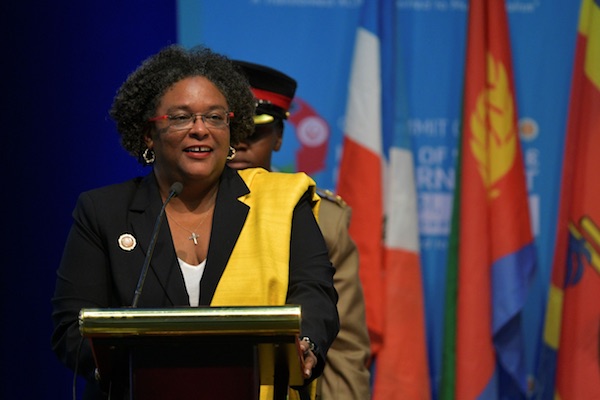
Countries around the world are re-examining their post-colonial identity after Barbados moved to remove the English queen as the head of state. The island has said that it is planning to become a republic as it moves to withdraw from the Commonwealth and “leave its colonial past behind”.
Most of the population of Barbados have ancestors who were victims of colonial slavery. It is estimated that between 1627 to 1807, some 387,000 Africans were shipped to the island against their will by English slave traders.
The country won its independence from Britain in 1966, but like many former colonised nations, kept Queen Elizabeth Windsor as its head of state - but not for much longer.
Governor-General Dame Sandra Mason said this week: “The time has come to fully leave our colonial past behind. Barbadians want a Barbadian Head of State. This is the ultimate statement of confidence in who we are and what we are capable of achieving.
“Hence, Barbados will take the next logical step toward full sovereignty and become a Republic by the time we celebrate our 55th Anniversary of Independence.”
Barbadian Prime Minister Mia Mottley announced the news in a written speech, quoting the Caribbean island nation’s first premier Errol Barrow’s warning against “loitering on colonial premises”.
She also said recently that her government wants to increase links with Ireland, with which Barbados has had a shared history in its pursuit of freedom.
The 17th century saw thousands of Irish driven to the Caribbean island by the actions of Oliver Cromwell: as indentured servants, as prisoners sold into lifetime servitude, and as economic migrants.
A domino effect may now follow Barbados among Commonwealth states, even before the disliked Prince Charles ascends to the throne.
There was dismay in 2018 in many former British colonies when Windsor announced that her son would succeed her as the head of the Commonwealth. A comment piece by Barbadian journalist Ruchira Sharma at that time is given credit for triggering the change in perspective in her country.
In it, she wrote it was wrong for Britain to continue to assume its position as head of the Commonwealth, as it is “a hideous reminder of Empire”.
Ms Sharma wrote that by making Charles the head of the Commonwealth, there was a “ghost of colonial rule”, and an attempt to maintain control over the former British Empire.
She explained: “A rich white man automatically assuming a leadership role isn’t particularly novel but since unlike many royal roles the position wasn’t actually hereditary, this was nothing but pure blatant nepotism.”
Ms Sharma added: “Considering the number of options available for head of state, including individuals far more representative and diverse from any of the Commonwealth countries, it was at the very least tone deaf and at worst downright offensive for the Royal Family to suggest Britain still has such a level of control over its former colonies.”
![[Irish Republican News]](https://republican-news.org/graphics/title_gifs/rn.gif)
![[Irish Republican News]](https://republican-news.org/graphics/title_gifs/harp.gif)

